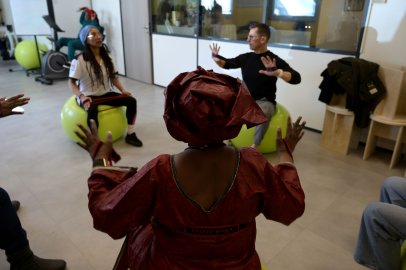Hope for Migrant Women with HIV: A Saint-Denis Initiative
In the heart of Saint-Denis, France, a transformative initiative is making waves by providing essential support to migrant women living with HIV. This program not only addresses health challenges but also empowers these women to reclaim their lives, fostering a sense of community and resilience among them. The stories emerging from this initiative highlight both the struggles and the triumphs of these women, showcasing their strength and determination.
The Challenges of Living with HIV as a Migrant Woman
Migrant women often face multiple layers of stigma and discrimination. Many are navigating the complexities of immigration status, healthcare access, and social support systems. This is particularly true for those living with HIV, who may encounter additional barriers such as:
- Limited access to healthcare due to language barriers and fear of deportation.
- Social isolation exacerbated by cultural differences and lack of community support.
- Economic challenges that make it difficult to afford medications and treatment.
The initiative in Saint-Denis recognizes these challenges and aims to provide tailored support that addresses both health and social needs. By creating a safe space for these women, the program fosters a sense of belonging and empowerment.
Empowerment Through Community Support
The heart of this initiative lies in its community-oriented approach. Women participating in the program benefit from:
- Peer support groups where they can share their experiences and foster solidarity.
- Access to health services, including counseling, testing, and treatment.
- Workshops aimed at building skills and enhancing employability, thus improving economic stability.
These elements help to combat the sense of isolation that many of these women feel. By connecting with others who share similar experiences, they can find strength and motivation to advocate for their health and rights.
Success Stories and Personal Transformations
The program has seen remarkable success stories, with many women reporting significant improvements in their quality of life. One participant shared, “I realized my life wasn’t over. I have a future, and I can contribute to my community.” This sentiment encapsulates the transformative power of the initiative. Women are not only receiving medical care but are also learning to navigate the challenges of their immigration status, often exploring options like advance parole to facilitate their residency.
Broader Implications for Immigration and Health Policy
The Saint-Denis initiative serves as a microcosm for the broader conversation surrounding immigration reform and health policy. As discussions about humanitarian parole and immigration programs like the 287g program continue to evolve, the lessons learned from this initiative can inform future policies aimed at supporting vulnerable populations, particularly women. Ensuring access to healthcare for all, regardless of immigration status, is a critical step toward achieving equity and justice.
Looking Forward: Hope and Advocacy
As the initiative continues to grow, its advocates are pushing for greater awareness and support for migrant women living with HIV. They emphasize the importance of creating policies that recognize the unique challenges faced by this demographic. The ongoing commitment to immigrant registration and the fight against stigma is vital for ensuring that these women can live healthy, fulfilling lives.
In conclusion, the initiative in Saint-Denis provides a beacon of hope for migrant women living with HIV. By fostering community support, empowering women through education and healthcare access, and advocating for change, this program is not just transforming individual lives but is also paving the way for a more inclusive society. As we look to the future, it is essential to continue amplifying these voices and championing their rights.










